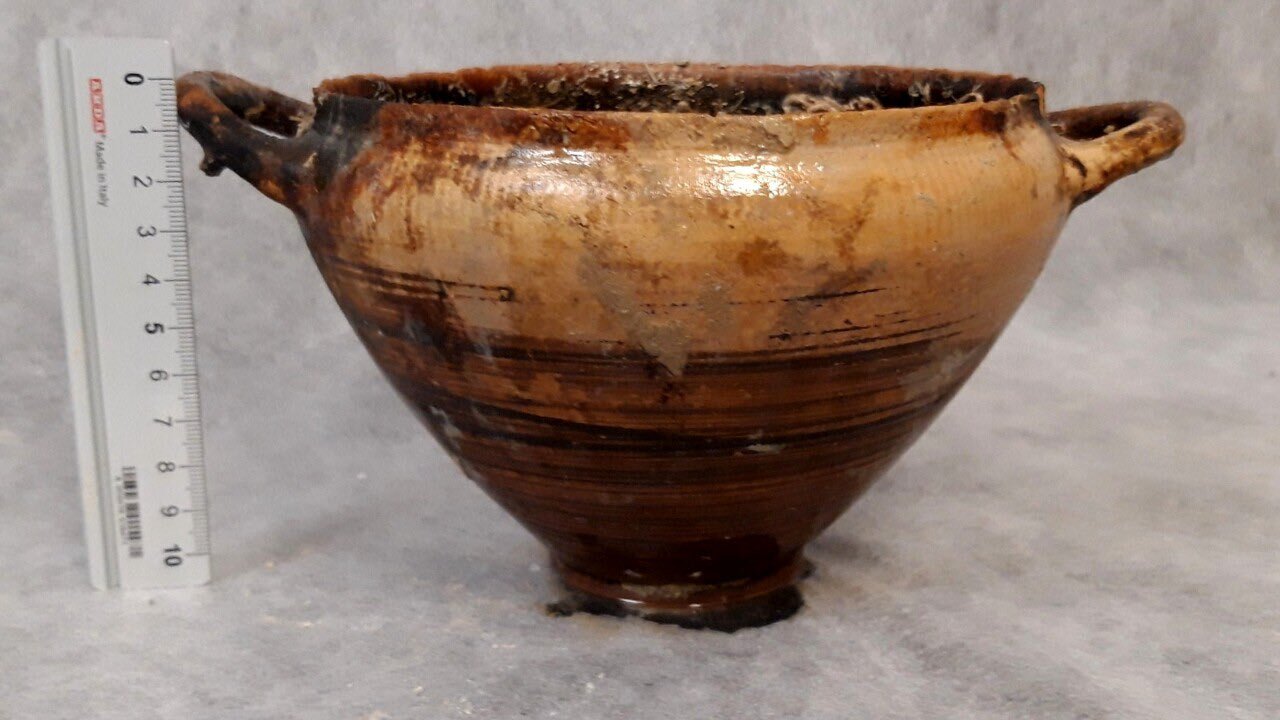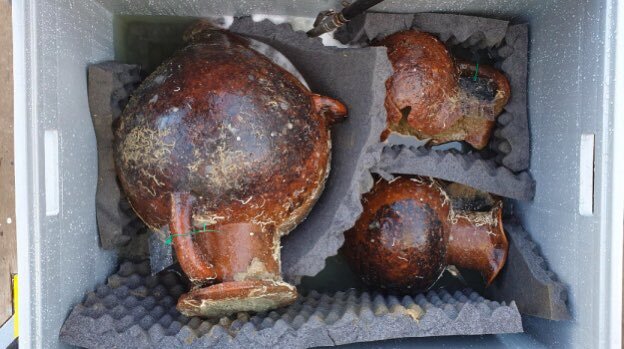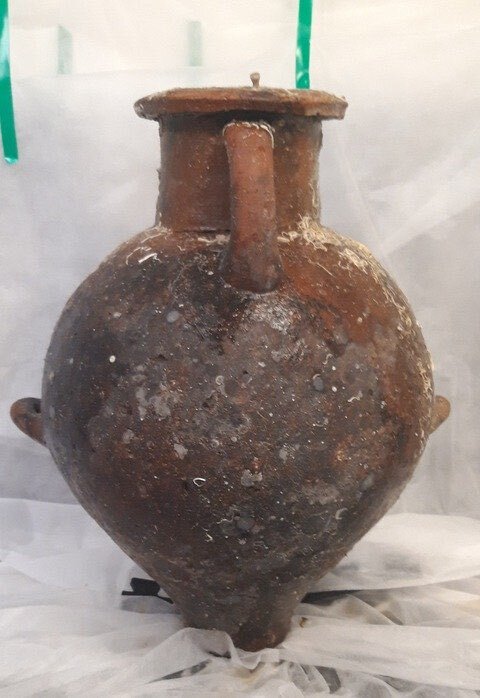Pieces of pottery that were on a ship that sunk about 2,600 years ago in the Strait of Otranto, in a maritime area between Italy and Albania, have been recovered by archaeologists from the National Superintendence for Underwater Cultural Heritage, the Italian government announced on Saturday.
The 7th century BC Greek ceramic vase is one of the objects found on a ship that sunk 2,600 years ago in Italy. Photo: ANSA
According to the Italian Minister of Cultural Heritage, Dario Franceschini, it is the first time that an operation of this type has been conducted in such a thorough way. The objects were about 780 meters away.
Superintendent Barbara Davide classifies the operation as “sensational”, because it will help to better understand the trade that took place in the Magna Graecia region, as the southern Italian peninsula was called, which was colonized by the Greeks between the 8th and 7th centuries B.C
Amphorae (a kind of vase), jugs and a large number of ceramic wine glasses that would have been used by the elite of the time were found stacked and “packaged” inside large vases.
According to the researchers, this “packaging” had the mission of preventing breakage during strained sea voyages. In addition, there was still food and olives inside some amphorae.
So far, 22 pieces have been removed from the sea, but there are an estimated 220 objects in the wreck. “A great discovery that demonstrates the need to return to investing in underwater archeology,” said Franceschini, announcing that the Ministry wants to start a new project in this direction soon.
As Davide reported, the ship was located thanks to what he calls “preventive archeology,” which carries out high-tech studies of regions capable of mapping areas of interest. The discovery of the wreck took place 22 nautical miles from Earth (about 41 kilometers).
However, the superintendent points out that the biggest surprise came from the laboratory analysis, that the first pieces recovered were much older than previously believed. “We did not think that between Magna Graecia and the motherland there could be such an organized trade even at that time”, said Davide.












